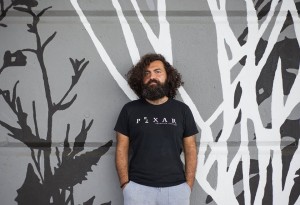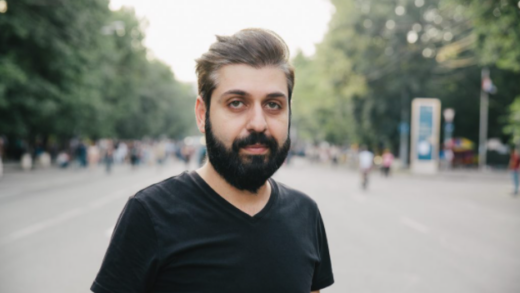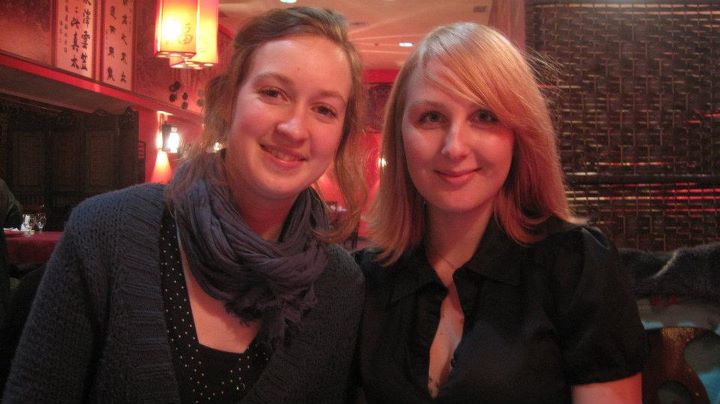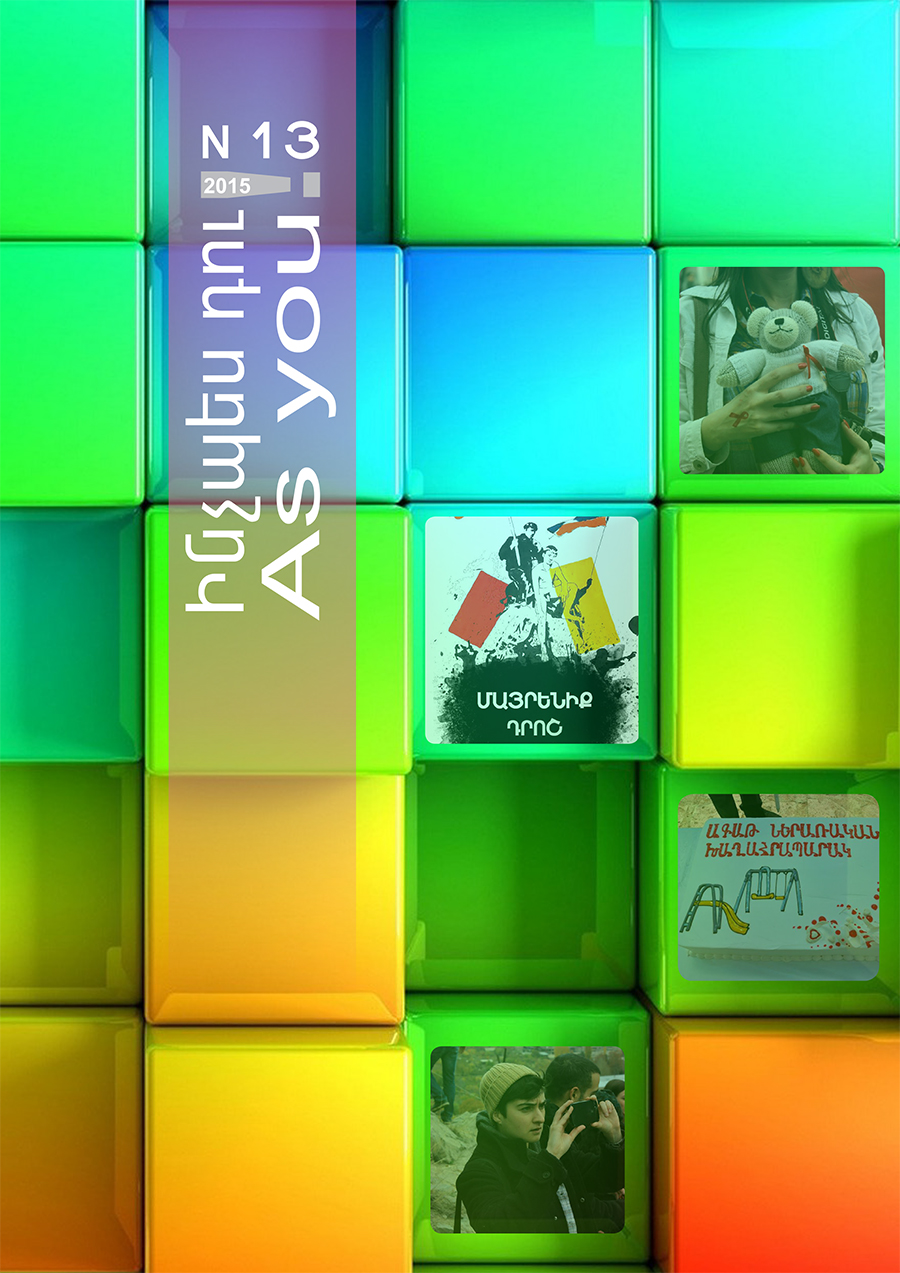Three friends under the tricolor flag, a flag created to protect them…but the flag bearer refuses to allow it.
In Armen of Armenia’s Mommyland:Flag novel three friends are sexual minorities: Nar – a transvestite, who has been beaten and kicked out of his home for wearing women’s clothing, Sam and Ando – gay men, whose romance ends with Sam’s death in the army.
Armen says that one of the reasons he chose to write this story was that he wanted a novel that would present gay life in a positive light to exist in Eastern Armenian and he wanted to be the one to offer it to his generation.
Besides their sexual identity, Armen’s three characters are united by the liability issue of being drafted into the army. Just like Armenia considers being heterosexual a must, serving in the army is a must as well. To serve the compulsory military service, everyone is expected to love people of the opposite sex, otherwise they are exempted from the obligation they have to commit for their homeland, dismissed as people who have a mental disorder. In this novel, Ando has already served in the army, Nar wants to get exempted but Sam wants to serve.
Nar only enjoys his identity at nights – singing in clubs as his female persona—but the desire to be exempted from the service is so great that he presents his femininity in the most intolerant of places: he presents himself in the military commission dressed as his female self.
The military commissar degrades Nar, tears his clothes, snatches his wig, and lectures him on patriotism before Nar starts to correct the commissar on his mistakes about “national knowledge.” The “immoral” image of the transvestite is put under question by the commissar, just like Kim Kardashian’s arrival in Armenia proved a tough burden on Armenian traditionalists.
When offending Nar, the commissar recalls a part from Gusan Shirin’s song, thinking that the author is Gusan Jivan. Nar corrects him and then sings the song “Aygepan.” Armen puts the commissar in a cognitive dissonance through Nar, just like Armenian homophobes, who upon hearing Parajanov was gay, insist that one who loves the same sex cannot be talented. Parajanov is not here to baffle homophobes with his presence, but there is Nar, and the commissar can only scream, “Get out of here!” in response to his confusion.
It is only the knowledge connecting both sides that elevates Nar in the eyes of his haters. The commissar faces two surprises: one – without shame, a conscript walks into his room with women’s clothes on, and second – that same wretched man, who was supposed to be incapable of anything, sings a troubadour’s song and, what’s more, corrects the mistake of the commissar, the defender of the country.
In contrast to Nar, Sam wants to join the army. In his case, it’s the desire to eliminate the mandatory nature in what is considered to be mandatory that brings Sam to the military in order to rule out the notion that a gay person is not suited for service. However, Armen doesn’t draw that line until the end. He isolates Sam from other soldiers in the army, doesn’t get him involved in the conversations of others, and even leads him to his death. In fact, he seems to confirm that the army is not the place for gay people. Yet, after Sam’s death, Armen dismisses Ando from an uninteresting banking job and sends him to the army again– this time as a contract worker, by changing the compulsory into the voluntary.
Armen believes that a defenseless person cannot defend anyone: “Moreover, I wouldn’t entrust my protection to a person who is defenseless, oppressed, has insecurities, who is psychologically in a critical condition…and there’s no way I would provide that person with a weapon, therefore I have very different opinions, for instance, on gay people serving in the army in United States and Armenia. In general, I’m against what is mandatory even if it assumes a common welfare, for example general education, health insurance, etc” said the author.
The chapters in the novel are divided by the colors of the flag of Armenia; each color portrays one of the characters.
The scenes are followed by chapters named after the Republic of Armenia, where Armen, as a publicist, gives his opinion about Armenia, the Apostolic Church, the Armenian flag, being Armenian, the history of Armenia, the problems of Armenia, emigration, the Armenian army. In each case he discusses their shortcomings. Through his work, the author tries to prove the artistic element of his writing by limiting the freedom of movement of constructed narration and by adjusting it to the whims of his views – not allowing the author to disappear into the novel.
In the final chapter, titled “Flag Pole,” the author appears in the novel with the name, “Orator,” and according to the ideologies in chapters titled, “Republic of Armenia,” he leads the march of all minorities; in fact, this seems to be the dream of the author – to see all of the oppressed united under the flag of the Republic of Armenia.
Mommyland:Flag is the first novel in Armen of Armenia’s trilogy; he is now working on Mommyland:Anthem and Mommyland:Gerb.
The novel has been published in “Inknagir” literary website and in “Yavruhrat” ebooks.
Hovhannes Ishkhanyan
Translated by Kolya Hovhannisyan





2 Responses
[…] Հայկական դրոշից օտարվածները. գրողը նույնասեռականների… […]
[…] As You magazine’s profile of Armen of […]